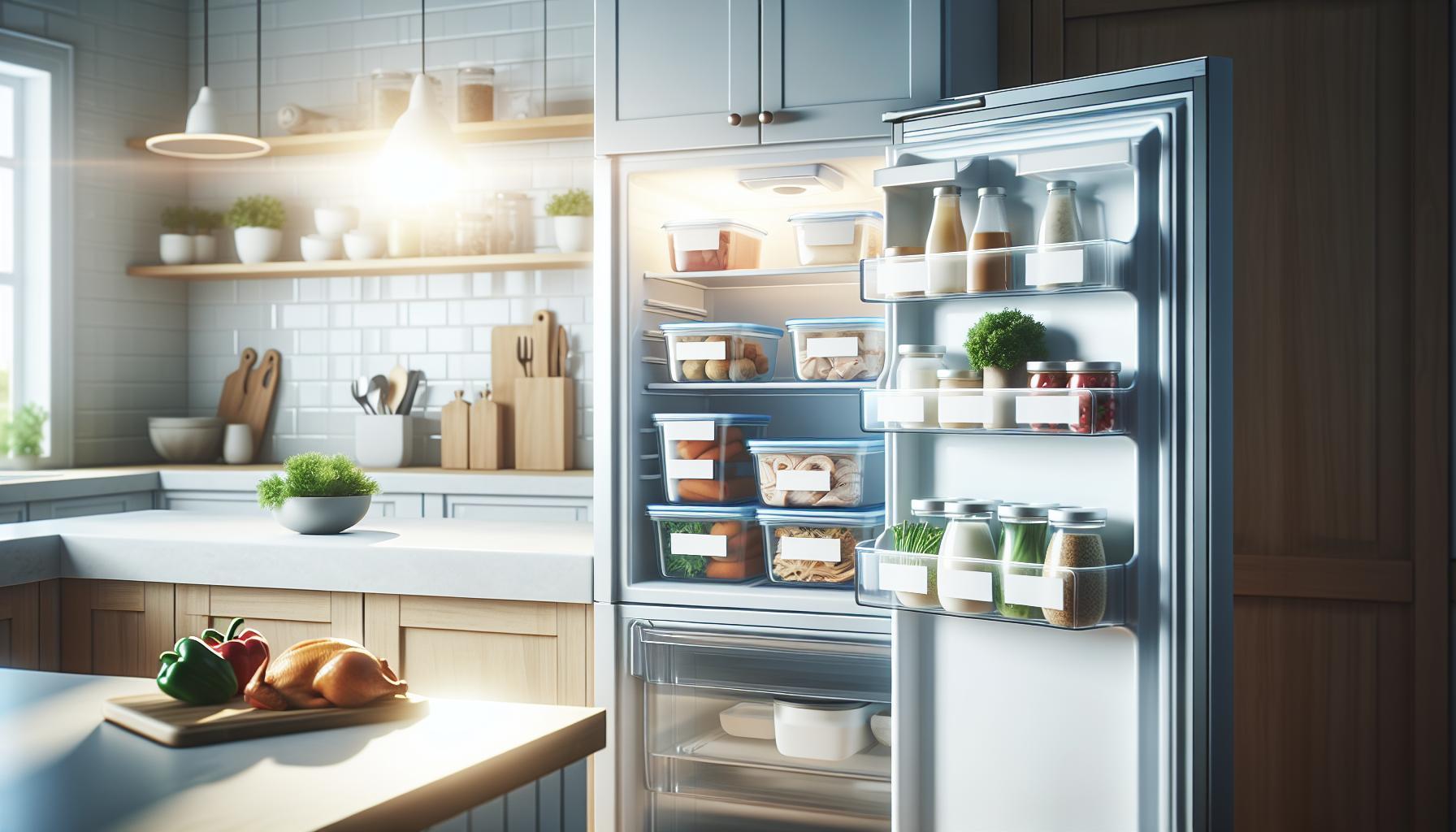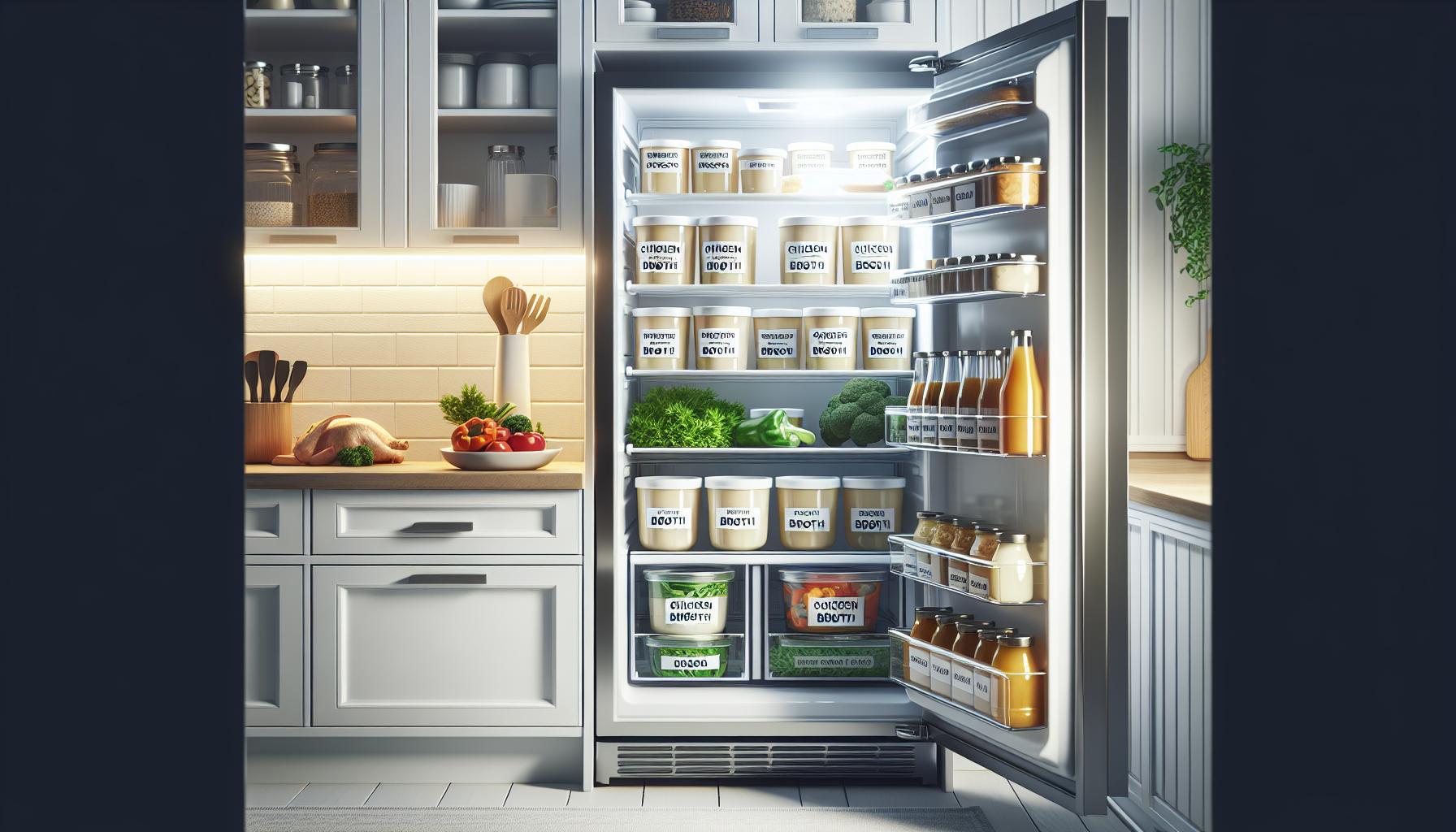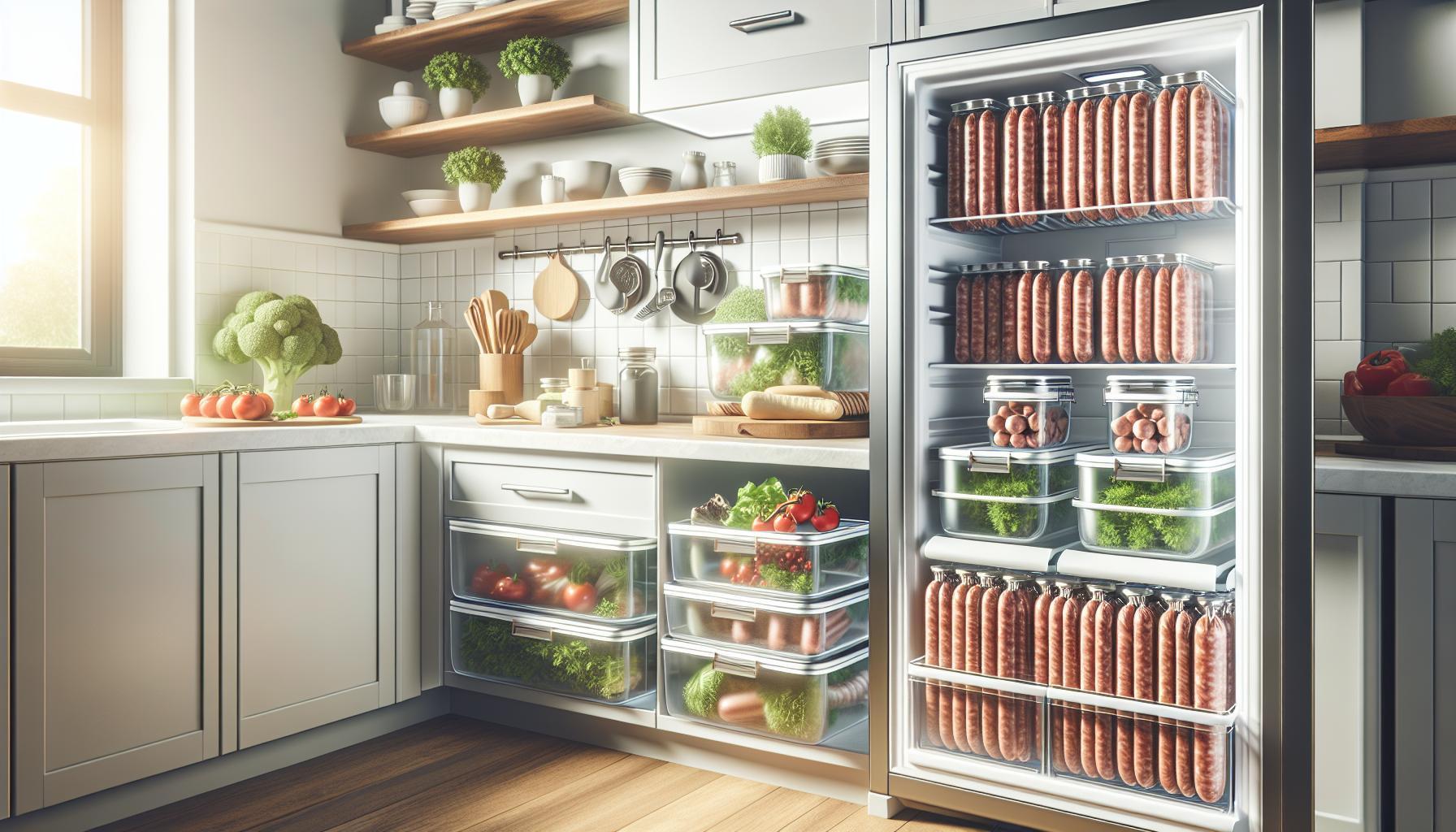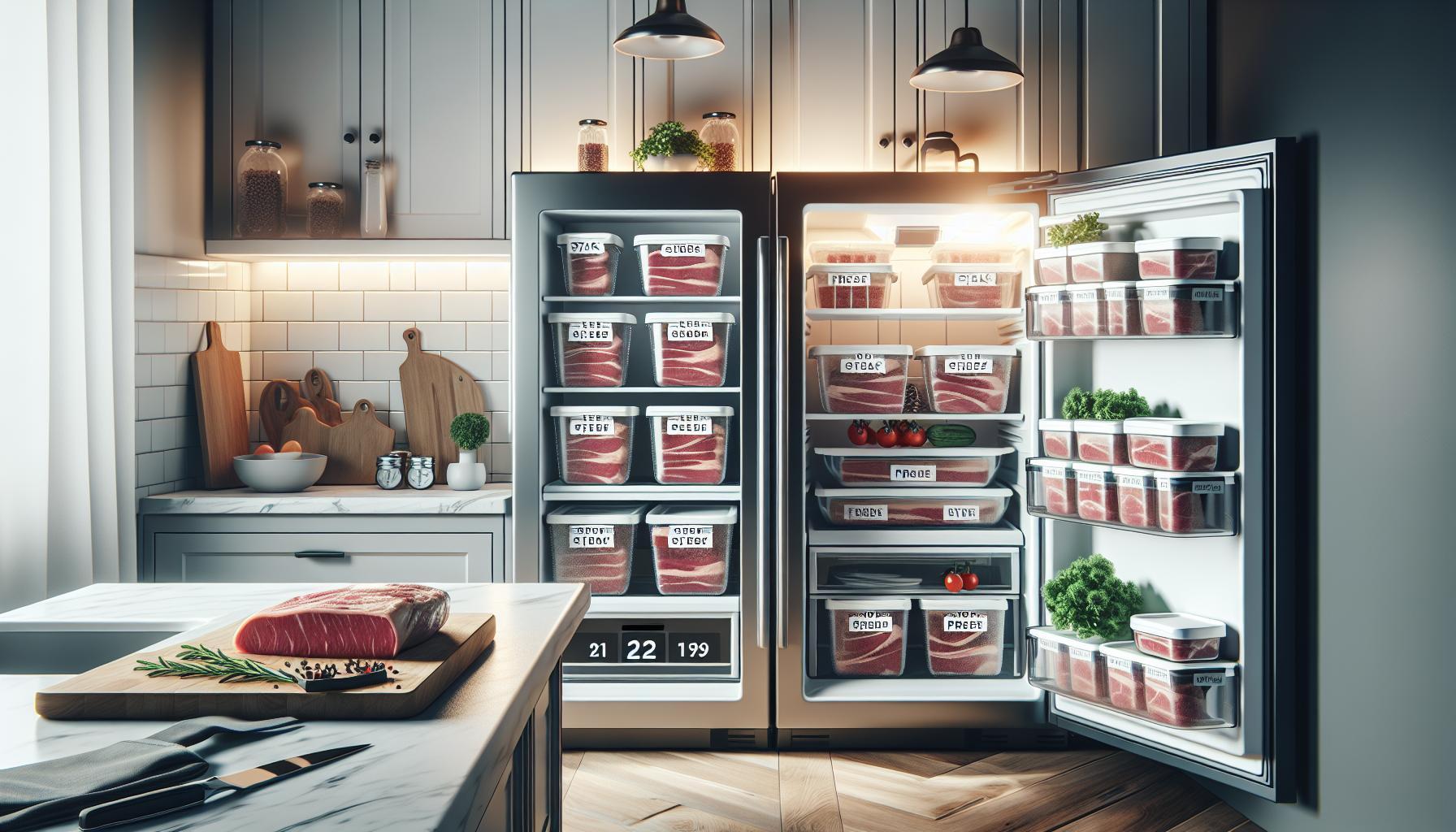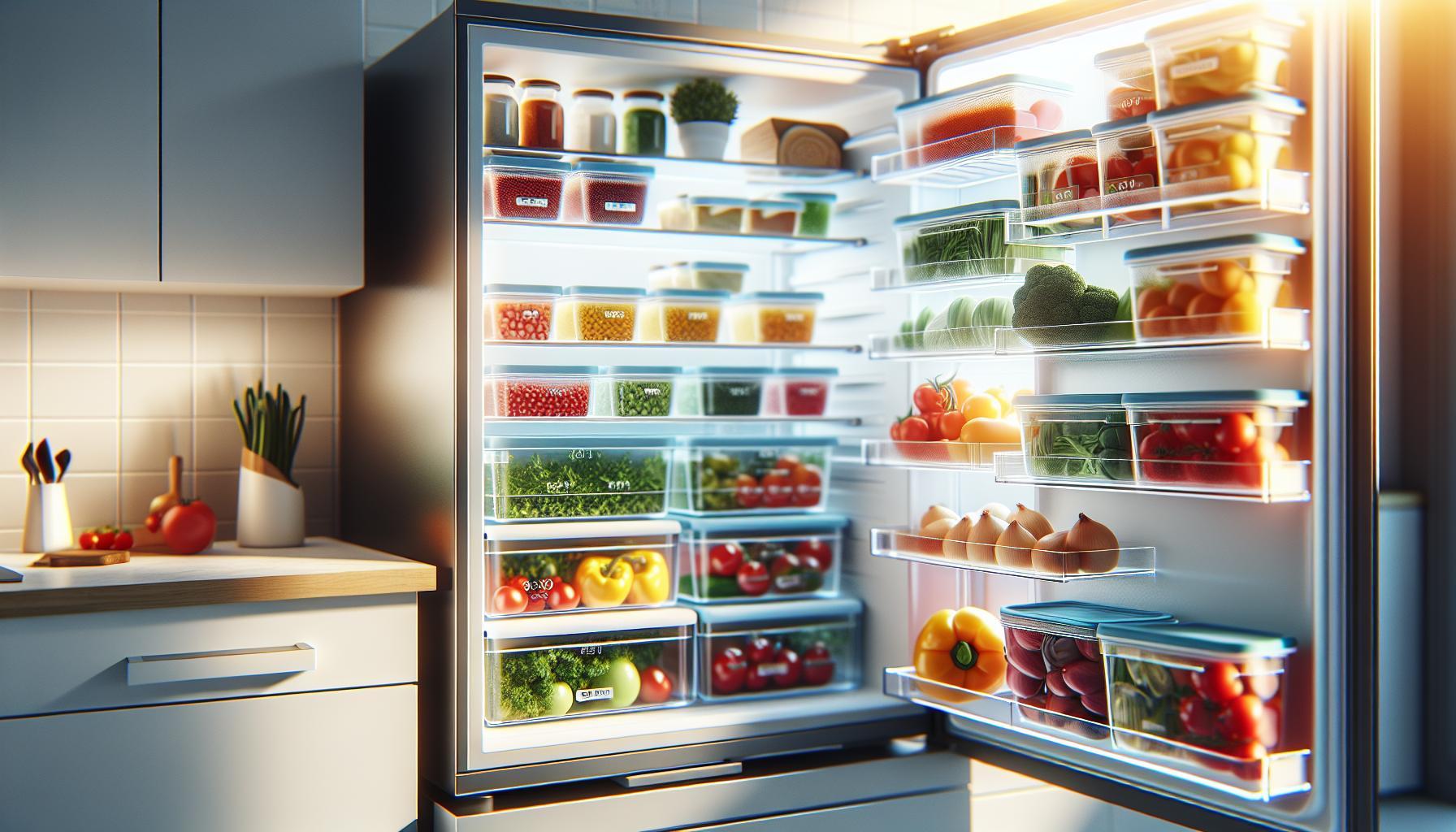Did you know that cooked chicken can remain safe to eat in your refrigerator for only a limited time? Understanding how long this popular protein stays fresh is crucial for avoiding foodborne illnesses and reducing waste in your kitchen. Proper storage techniques not only help preserve flavor and texture but also ensure the safety of your meals.
Many home cooks face the dilemma of leftover chicken and wonder how long it can be kept safely. Whether you’re planning meals for the week ahead or simply enjoying a delicious roast, knowing the shelf life of cooked chicken in the fridge can empower your cooking decisions.
In this guide, we will delve into the specifics of cooked chicken storage, providing you with essential timelines and best practices to maintain food safety. By the end, you’ll have the knowledge needed to avoid spoilage, keep your family safe, and make the most of your culinary creations.
How Long Can Cooked Chicken Last?
Cooked chicken is a versatile protein that’s a staple in many households, but knowing how long it remains safe to eat is essential to avoid spoilage and foodborne illnesses. Typically, properly stored cooked chicken can last for up to 3 to 4 days in the refrigerator. This timeframe assumes that the chicken has been cooked to an internal temperature of 165°F (74°C) and immediately refrigerated within two hours of cooking to minimize bacterial growth.
To maximize the freshness of your cooked chicken, store it in airtight containers or tightly wrapped in aluminum foil or plastic wrap. This minimizes exposure to air and moisture, which can lead to spoilage. If you’re anticipating that the chicken won’t be consumed within that timeframe, consider freezing it, where it can last for about 2 to 6 months, retaining its best quality if properly packaged.
Always keep an eye out for signs of spoilage even within the recommended timeframes. If the chicken has an off smell, a slimy texture, or any discoloration, it’s better to err on the side of caution and discard it. Safe storage practices are critical for enjoying your meals without worry.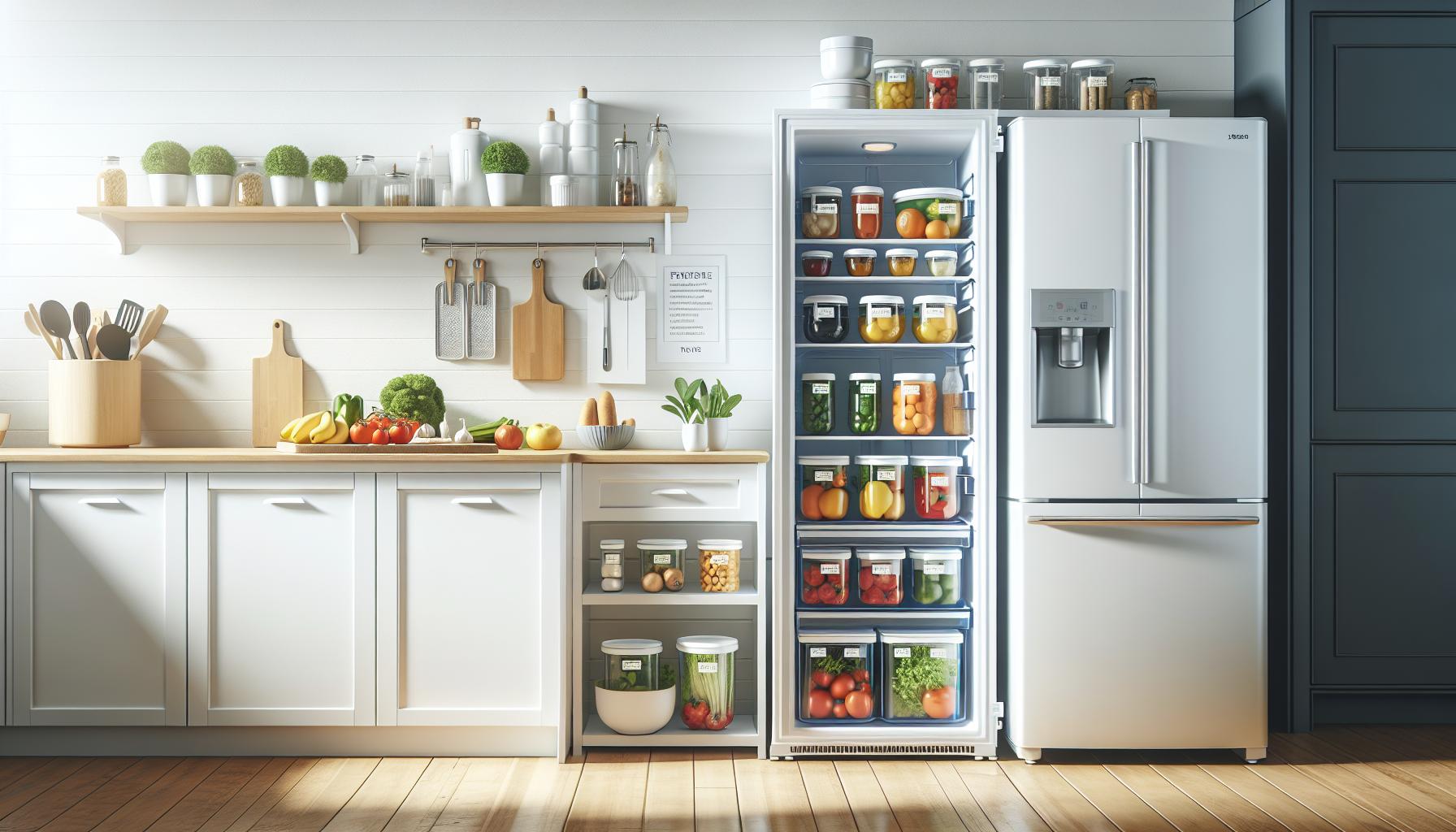
Signs Your Cooked Chicken Has Spoiled
Knowing the signs of spoiled cooked chicken can save you from potential foodborne illness and unnecessary waste. Even within the safe storage timeframe of 3 to 4 days in the refrigerator, it’s imperative to remain vigilant. Spoiled chicken often exhibits a few key visual and sensory indicators that should not be overlooked.
First and foremost, smell is a powerful detector of spoilage. Fresh cooked chicken should have a mild, savory aroma. If you detect a sour or off-putting odor as soon as you open the container, it’s an immediate red flag. Additionally, texture plays a crucial role; if the chicken feels slimy or sticky to the touch, this is an indicator of bacterial growth and potential spoilage.
Visual cues are equally important. Healthy cooked chicken should maintain a consistent appearance, free from discoloration. If you notice any gray or greenish hues, or if the chicken appears dull rather than moist, it is time to discard it. Lastly, check for any visible mold or unusual growths on the surface, which are unequivocal signs that the chicken should not be consumed.
By being aware of these signs, you can enjoy your meals with confidence and reduce the risk of food safety issues. Always prioritize safety over salvage when it comes to food-if in doubt, throw it out.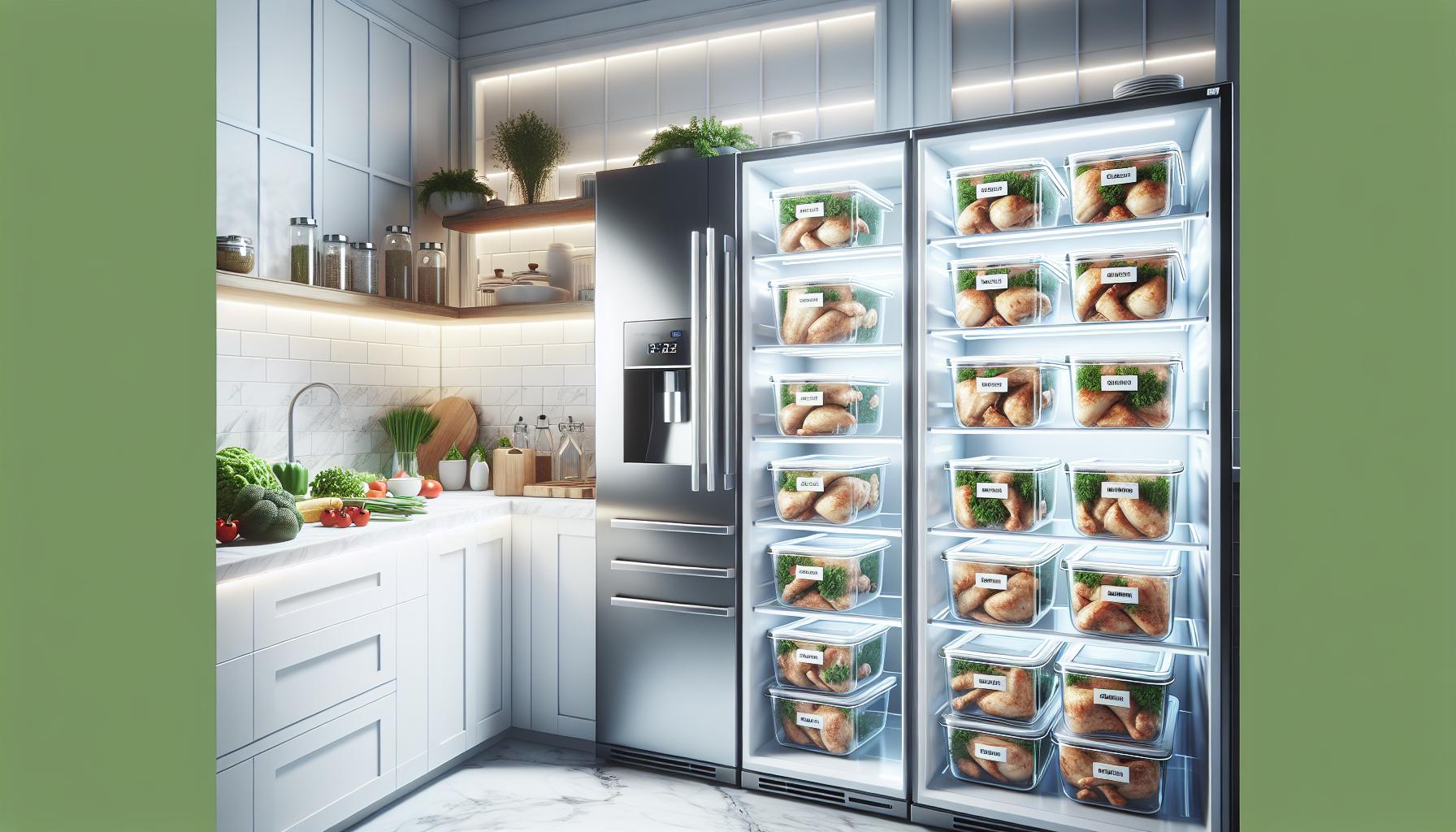
Best Practices for Storing Cooked Chicken
Proper storage of cooked chicken is crucial for maintaining its quality and ensuring food safety. The general guideline for safely storing cooked chicken in the refrigerator is to keep it at a temperature below 40°F (4°C) and consume it within 3 to 4 days. However, following best practices can help you maximize freshness and minimize the risk of spoilage.
First, it’s essential to cool cooked chicken quickly before refrigerating it. Leaving it at room temperature for no more than two hours helps avoid bacteria growth. Ideally, cut larger pieces into smaller portions to hasten the cooling process. Once cooled, store the chicken in airtight containers or tightly wrap it with aluminum foil or plastic wrap to prevent exposure to air, which can lead to dryness and spoilage.
Storage Location Matters
Place the containers at the back of the refrigerator, where temperatures are typically more consistent and colder. Avoid storing cooked chicken in the refrigerator door, as this area is subject to fluctuating temperatures every time the door is opened. If you’re looking to extend the shelf life beyond a few days, consider freezing the chicken within a couple of hours after cooking for longer preservation.
Another helpful tip is to label your storage containers with the date of cooking, so you can easily track their freshness. This practice will remind you when to consume or discard them, ensuring that you abide by the 3 to 4-day rule for refrigerator storage.
By adhering to these simple yet effective storage practices, you can enjoy your cooked chicken with confidence for several days, while also promoting food safety and minimizing waste.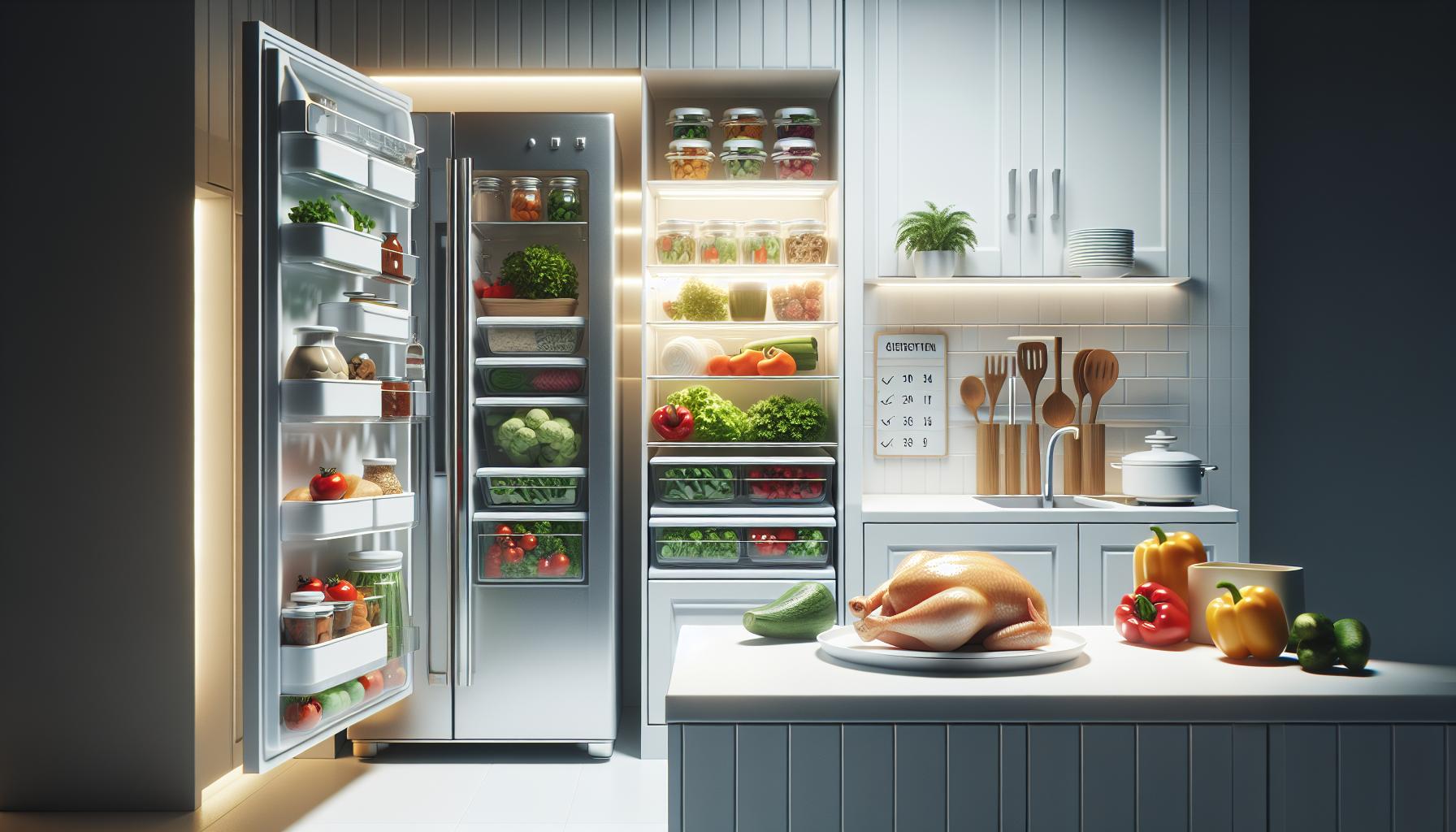
How to Reheat Cooked Chicken Safely
To enjoy leftover cooked chicken without compromising safety, it is essential to reheat it correctly. According to food safety standards, reheating chicken to the right temperature not only enhances flavor but also ensures that any bacteria that may have developed during storage are effectively eliminated. The USDA recommends heating cooked chicken to an internal temperature of 165°F (74°C) to guarantee safety.
When reheating, you have several effective options:
- Microwave: Place the chicken in a microwave-safe dish. Cover it with a lid or microwave-safe plastic wrap to trap steam, which helps prevent drying out. Heat on high power in increments of 1-2 minutes, stirring or flipping the chicken halfway through to promote even heating. Always check the temperature in multiple spots.
- Oven: Preheat your oven to 350°F (175°C). Place the chicken in an oven-safe dish, cover with foil to keep moisture in, and heat for about 20-30 minutes. Similar to microwaving, the internal temperature should hit 165°F (74°C) before serving.
- Stovetop: Heat a skillet over medium heat and add a small amount of oil or broth. Place the chicken in the skillet, cover, and heat for about 5-7 minutes, flipping occasionally until fully heated through. Again, ensure the temperature reaches 165°F (74°C).
Always use a food thermometer to verify that the chicken has reached the recommended temperature. This practice eliminates guesswork, helping to prevent foodborne illnesses. Additionally, if you have previously frozen the cooked chicken, it’s best to thaw it in the refrigerator before reheating to maintain its texture and ensure even heating.
Remember, once reheated, chicken should not be refrozen. Aim to consume it immediately to enjoy its best flavor and quality. By following these reheating guidelines, you can safely enjoy your leftover chicken while minimizing the risk of foodborne illness.
Understanding Temperature Guidelines for Chicken Storage
When it comes to storing cooked chicken, understanding the appropriate temperature guidelines is crucial for maintaining freshness and safety. Cooked chicken should be promptly refrigerated to prevent the growth of harmful bacteria. Ideally, you should refrigerate cooked chicken within two hours of cooking if the ambient temperature is below 90°F (32°C). If the temperature exceeds 90°F, refrigerate within one hour. The goal is to keep your refrigerator at or below 40°F (4°C), as this temperature significantly slows bacterial growth.
To ensure the best quality, cooked chicken can be stored in the fridge for about three to four days. Beyond this window, the risk of spoilage increases. To maximize the chicken’s shelf life, store it in airtight containers or tightly wrapped with plastic wrap or aluminum foil. This not only helps to prevent exposure to air, which can lead to drying out, but it also minimizes the absorption of odors from other foods.
When it comes to reheating stored chicken, the critical guideline to remember is to heat it to an internal temperature of 165°F (74°C) before consumption. This temperature ensures that any potential bacteria that may have developed are effectively eliminated. It’s advisable to use a food thermometer to verify that the chicken has reached this temperature throughout. By following these temperature guidelines, you can enjoy your cooked chicken safely while maintaining its flavor and texture.
Maximizing Freshness: Tips for Prepping Chicken
One effective way to keep cooked chicken fresh is by understanding the basics of proper preparation before cooking. By following good practices, you not only enhance the quality of your meals but also help to extend the shelf life of your leftover chicken. First and foremost, choose high-quality chicken from reputable sources; fresh chicken is less likely to harbor harmful bacteria.
Before cooking, ensure that your workspace is clean by sanitizing counters, cutting boards, and utensils. This minimizes the risk of cross-contamination, which can lead to premature spoilage. It’s also wise to marinate chicken in the refrigerator rather than at room temperature; this maintains a safe environment and preserves the meat’s flavor. When preparing the chicken, avoid letting it sit out longer than necessary. Aim to cook it promptly after preparation, ensuring you reach an internal temperature of 165°F (74°C) to eliminate potential pathogens.
After cooking, allow the chicken to cool to room temperature for no more than two hours before refrigerating, as letting it sit longer can encourage bacterial growth. Store the chicken in airtight containers or tightly wrap it in plastic wrap or aluminum foil-this prevents moisture loss and protects it from absorbing unwanted odors from the fridge. For those looking to freeze their cooked chicken, consider portioning it into meal-sized servings before freezing; this helps in defrosting only what you need and limits repeated thawing and refreezing, which can compromise taste and texture.
By implementing these practices, you ensure that your cooked chicken remains delicious and safe to eat for up to three to four days in the refrigerator, allowing for a flexible and worry-free meal plan.
Freezing Cooked Chicken: What You Need to Know
Freezing cooked chicken is an excellent way to extend its shelf life while preserving its flavor and texture. When properly frozen, cooked chicken can last for up to three to four months without significant loss of quality, allowing you to prepare meals in advance and reduce food waste. To achieve the best results, consider the following guidelines.
Begin by allowing the cooked chicken to cool down to room temperature, but make sure not to leave it out for more than two hours to minimize the risk of bacterial growth. Portion the chicken into meal-sized servings, which makes it easier to thaw only what you need later on. Use airtight containers or heavy-duty freezer bags, ensuring as much air is removed as possible to prevent freezer burn. Label each container with the date of freezing, so you can easily keep track of how long the chicken has been stored.
When you’re ready to use the frozen chicken, it’s essential to thaw it safely. The best method is to move it from the freezer to the refrigerator, allowing it to thaw slowly over 24 hours. If you need the chicken more quickly, you can use the microwave’s defrost setting or place it in a sealed bag under cold running water; just make sure to cook it immediately afterwards.
While freezing can effectively prolong the life of cooked chicken, it’s important to recognize that once thawed, the quality may not be exactly the same as when it was first cooked. However, employing proper freezing techniques will ensure that your meals remain delicious and enjoyable, giving you the flexibility to enjoy your favorite dishes any time you wish.
The Impact of Marinades on Storage Time
Marinating chicken not only enhances its flavor but can also impact its shelf life when stored properly. Marinades typically contain acidic ingredients, such as vinegar or citrus juices, which can help to inhibit bacterial growth. However, it’s essential to understand how these marinades interact with the cooked chicken to ensure optimal safety and freshness.
When chicken is marinated before cooking, the marinated meat can potentially stay fresher for longer. The acidity from marinades can slow down spoilage, allowing cooked chicken to last in the refrigerator for about 3 to 4 days if stored in an airtight container. Here are some steps to ensure that marinated chicken remains safe and flavorful:
- Cool Down Quickly: Once cooked, let the chicken cool to room temperature for no longer than two hours before refrigerating. This reduces the risk of bacteria multiplying.
- Airtight Containers: Store the chicken in airtight containers to prevent exposure to air, which can cause the meat to dry out and become unpalatable.
- Labeling: Always label containers with the date of cooking or marinating to help keep track of its freshness.
Another important consideration is how long the chicken was marinated before cooking. If chicken is soaked in a marinade for an extended period, it can become overly soft and change texture. High-acid marinades can “cook” the chicken slightly, which alters the cell structure. Cooked chicken that has absorbed a lot of marinade should still be stored promptly and consumed within the standard timeframe to avoid spoilage.
In summary, while marinades can enhance the storage potential of cooked chicken, it’s crucial to adhere to safe food practices. Always monitor the chicken for any signs of spoilage, such as off smells or slimy textures, which can indicate that the chicken has gone bad. By following proper storage methods, you can enjoy the delicious flavors of marinated chicken while ensuring safety and quality.
Is It Safe to Eat Leftover Chicken?
Eating leftover chicken can be a delicious and convenient choice, but ensuring its safety is paramount. Cooked chicken can safely last in the refrigerator for about 3 to 4 days, provided it’s stored properly. If you’re reaching for those leftovers, first confirm that the chicken was cooked to the appropriate internal temperature of 165°F (74°C) before refrigeration. This step significantly reduces the risk of harmful bacteria surviving.
When assessing whether it’s safe to eat leftover chicken, look for obvious signs of spoilage. Off smells, a slimy texture, or discoloration can indicate that the chicken has gone bad. If any of these signs are present, it’s best to err on the side of caution and discard the chicken. In addition, always remember that reheating does not kill all bacteria; hence, it’s crucial to avoid prolonged storage of cooked chicken.
If you find yourself often with leftover chicken, consider portioning your cooked chicken into smaller servings before storing. This not only promotes faster cooling but also makes reheating more convenient and reduces the risk of repeated temperature fluctuations. Always store in an airtight container or wrap tightly in plastic wrap to minimize exposure to air, which can promote spoilage.
Before consuming, ensure to reheat chicken to 165°F (74°C), which you can easily check with a food thermometer, ensuring it’s heated thoroughly and evenly. By following these guidelines, you can enjoy your leftover chicken while minimizing any food safety risks.
Common Myths About Cooked Chicken Shelf Life
There are many misconceptions surrounding the shelf life of cooked chicken, and understanding the facts can help ensure both safety and enjoyment of this versatile protein. One common myth is that cooked chicken can last indefinitely in the refrigerator. In reality, cooked chicken should be consumed within 3 to 4 days if stored properly. After this period, the risk of spoilage and foodborne illness increases significantly, despite how the chicken may look or smell.
Another prevalent belief is that reheating cooked chicken kills all harmful bacteria. While it’s true that cooking can eliminate many pathogens, bacteria can still produce toxins that are not destroyed by reheating. Therefore, if cooked chicken has been stored for too long, or if it shows signs of spoilage, it’s best to discard it, rather than relying on reheating methods to make it safe. Additionally, some people think that as long as the chicken is covered or sealed, it will remain fresh longer. However, exposure to air, even in an airtight container, can lead to freezer burn or spoilage, especially if the food is not cooled properly before storing.
Storage Best Practices
To maximize the freshness of cooked chicken, ensure it’s refrigerated at or below 40°F (4°C) immediately after cooking. Consider using smaller, shallow containers for storage to promote rapid cooling. Properly label items with the date cooked to keep track of how long they’ve been stored.
Key Takeaways
- 3 to 4 days in the refrigerator: Consume within this timeframe to prevent spoilage.
- Reheating doesn’t eliminate toxins: Always assess chicken for signs of spoilage before reheating.
- Proper cooling is crucial: Store chicken in shallow containers to reduce risk.
By busting these myths, you can handle cooked chicken with greater confidence, ensuring that your meals remain safe and enjoyable.
How to Safely Thaw Frozen Chicken
Thawing frozen chicken safely is crucial to prevent foodborne illnesses and ensure the quality of the meat. A common mistake many make is to leave chicken out at room temperature to thaw, which can allow harmful bacteria to proliferate. Instead, there are three recommended methods for safely thawing frozen chicken: in the refrigerator, in cold water, and in the microwave.
For the most reliable method, thaw your chicken in the refrigerator. This process takes time – generally about 24 hours for every 5 pounds of chicken. It keeps the meat at a safe temperature (below 40°F or 4°C), which eliminates the risk of bacterial growth. Once thawed, you can keep the chicken in the fridge for an additional 1 to 2 days before cooking.
If you need to thaw chicken more quickly, the cold water method is effective as well. Submerge the chicken in its packaging in cold water, changing the water every 30 minutes to ensure it stays cold. A whole chicken may take several hours to safely thaw using this method, while smaller cuts might only need an hour or two. It’s essential to cook the chicken immediately after thawing with this method to ensure it remains safe.
The microwave can also be used for a rapid thaw, but it’s imperative to cook the meat right afterward. Microwaving can partially cook the chicken if not monitored closely, which can lead to uneven cooking once you transfer it to the stovetop or oven.
Here’s a quick overview of the thawing methods:
| Method | Time Required | Notes |
|---|---|---|
| Refrigerator | 24 hours per 5 lbs | Safest method, use within 1-2 days after thawing. |
| Cold Water | 1-2 hours (changing water every 30 min) | Cook immediately after thawing. |
| Microwave | Varies (faster than refrigerator) | Cook immediately after thawing. |
By adhering to these thawing methods, you’ll ensure that your chicken remains safe to eat while maintaining its flavor and texture. Always remember that proper thawing sets the foundation for safe cooking and enjoyable meals.
When to Discard Leftover Chicken
When it comes to food safety, knowing is essential to prevent foodborne illnesses. Cooked chicken, if stored properly, can last in the refrigerator for about 3 to 4 days. However, there are signs and guidelines to keep in mind to ensure it remains safe to eat.
First and foremost, trust your instincts. If leftover chicken has an off smell or a strange sticky texture, it’s better to err on the side of caution and throw it out. Additionally, if you notice any signs of mold or discoloration, do not consume the chicken. Remember the adage: “When in doubt, throw it out.” This principle is especially important in food safety.
To streamline this process, consider labeling your chicken with the date you cooked it or the date by which you should eat it. This simple step can help you stay organized and avoid keeping chicken beyond the safe timeframe. It’s also essential to store cooked chicken in airtight containers to limit exposure to air and bacteria.
If you have leftover chicken that has been in the fridge for longer than 4 days, it’s time to discard it to ensure your safety. Also, if you’re unsure of how long the chicken has been stored, it’s best to avoid consumption. Always prioritize food safety practices to enjoy your meals without any health risks.
Frequently asked questions
Q: How long can cooked chicken safely be stored in the fridge?
A: Cooked chicken can be safely stored in the fridge for 3 to 4 days. Ensure it is kept in an airtight container or tightly wrapped to maintain freshness and prevent contamination.
Q: What are the signs that cooked chicken has gone bad?
A: Signs of spoiled cooked chicken include an off smell, dull color, and slimy texture. If you notice any of these characteristics, it’s best to discard the chicken to avoid foodborne illness.
Q: Can cooked chicken be frozen to extend its shelf life?
A: Yes, cooked chicken can be frozen for up to 4 months. For best quality, wrap it in freezer-safe packaging or containers to prevent freezer burn. Remember to thaw it safely in the fridge when ready to use.
Q: Is it safe to reheat cooked chicken more than once?
A: While it’s safe to reheat cooked chicken multiple times, it should be heated to an internal temperature of 165°F (74°C) each time. Repeated heating may affect the texture and taste, so consider reheating only what you need.
Q: What is the best method for storing cooked chicken?
A: The best method for storing cooked chicken is to refrigerate it within 2 hours of cooking. Use an airtight container to prevent exposure to air and moisture, which can lead to spoilage.
Q: How can I tell if leftover chicken is still safe to eat?
A: To determine if leftover chicken is safe to eat, check for any off smells, discoloration, or sliminess. If it has been stored properly and is within the 3 to 4-day timeframe, it is likely still safe.
Q: Can I eat cooked chicken that has been in the fridge for longer than 4 days?
A: It is not recommended to eat cooked chicken that has been in the fridge for longer than 4 days, as it may carry a risk of foodborne illness. Always err on the side of caution and discard it.
Q: What should I do if I accidentally left cooked chicken out overnight?
A: If cooked chicken has been left out at room temperature for more than 2 hours, it is unsafe to eat and should be discarded. Bacteria can multiply rapidly at room temperature, increasing the risk of foodborne illness.
Key Takeaways
To ensure the safety and quality of your cooked chicken, remember that it should ideally be consumed within 3 to 4 days when stored in the refrigerator. If you’re ever unsure, trust your senses; a change in smell, texture, or color is a sign it’s time to let go. For more tips on food safety, check out our guides on “Best Refrigeration Practices” and “How to Properly Freeze Meat.”
Act now to enhance your kitchen knowledge and reduce waste-subscribe to our newsletter for weekly insights and stay informed! Have questions, or want to share your food storage experiences? Join the conversation in the comments below. By staying engaged, you’ll become a savvy cook, ready to tackle any pantry mystery. Remember, safe food practices lead to delicious meals and peace of mind!

